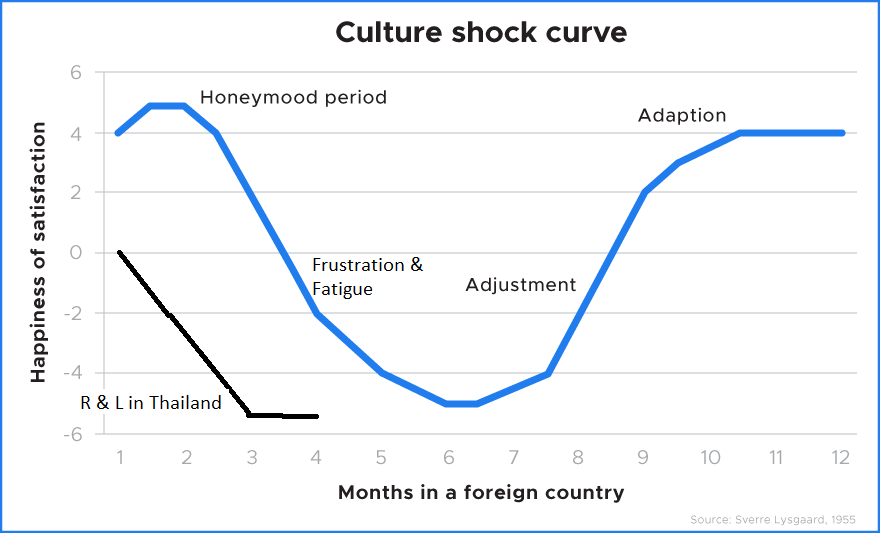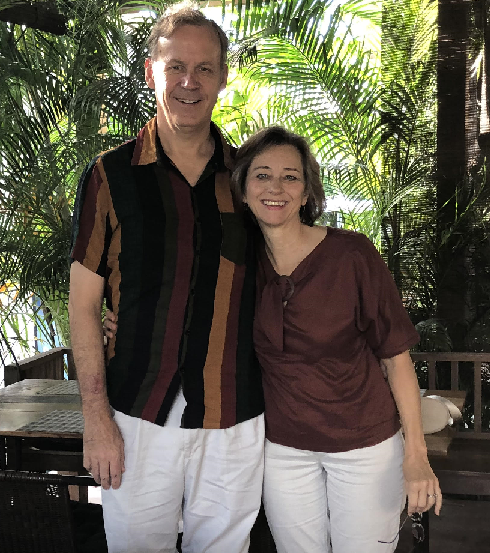|
“And with many other exhortations… he preached good news to them.” Luke 3:18 I (Lisa) had a delightful opportunity to host a seminar on Zoom the other day for students preparing for ministry at St. Paul’s Theological College (SPTC) and current pastors. I had been noticing a pattern of otherwise strong sermons fizzling out at the end, and I decided to drill down on the skill of making the final moments count. I began with a look at change more generally, first with a Bible study in the seemingly harsh words of John the Baptist which the people receive gladly. During a season of diminished control, John imparted hope by giving them them agency and concrete, doable exhortations, rooted in the promise of the coming of the Messiah. I then integrated insights into how human transformation happens that I had gained gained from picking the brains of a few therapist friends, reading Chip and Dan Heath’s excellent book Switch, and pondering my own recalcitrance to change. We then homed in on how the closing moments of the sermon catalyze change, using clips from three of my favorite sermon conclusions[1] and two of my favorite preachers reflecting on endings. With over 60 participants in the seminar, verbal participation was limited to the breakout sessions, but the very lively Chat space indicated resonance and appreciation throughout. (See our blog to find links to these resources.) This is just one of many opportunities that have been made more possible by our time here in Thailand. Yet, as we near its end, we have mixed feelings, and what follows is my reflection on why that is. If all goes well, we will fly to Ukraine on July 26. (This is not at all a certainty since a flight we had booked for the 24th was cancelled. There simply are not enough people in the air yet to field flights. So, as with many things in our lives, we say, “We hope to fly on the 26th.”) As cross-cultural workers, we feel a certain dissonance because the typical model of entering a new culture to serve would be that one throws oneself in, experiences difficulties, and navigates all sorts of differences, but is sustained through that by deepened love for the people one befriends, and by a growing appreciation for the new culture. In a global pandemic, all bets on that model are off. The classic Stages of Culture Shock[2] paradigm describes an initial Honeymoon Phase in which, upon entering a new place, one delights in new sights, flavors, and customs. This euphoric stage cannot last, but it serves an important purpose: it gives cross-cultural workers the energy they will need for the hard work of language and other learning during the next phase, which is tellingly called Frustration and Fatigue. Not surprisingly, entering a new culture by way of a 7-day mandated quarantine in a hotel room, only leaving the room for two Covid tests, is not an ideal set-up for creating a euphoric encounter with a new culture! I entertained lofty hopes of doing some Thai language learning during our quarantine, but threw up my hands in defeat upon learning of its 70-letter alphabet, complex tonal system, etc. I settled for learning the basic words of greeting and thanking. Befriending Thai people has been essentially impossible, between the language barrier and the pandemic lockdown. And the truth is, it was not why we came here.  The black line added to the familiar depiction of culture shock is a bit of self-mocking and does not actually reflect our enjoyment of the beauty of the geography, culture and people here. At the risk of sounding like we were ‘using’ Thailand, we came here for the time zone, and what it would make possible. And it has made so much possible: staff meetings with the team at SPTC that were in the wee hours of the night are now easily doable. I attend three different weekly meetings, each of which launches side conversations on Slack or WhatsApp throughout the day. We co-taught a weekend intensive course for SPTC, a portion of the course I have taught asynchronously all term. I have begun an evening course in Nepal, two evenings a week. Rich has been teaching in China, India, Armenia, and Nepal, and begins a two-week intensive in Malaysia this Monday--all at much saner times than when we were in Pasadena. So, we are grateful for our three-month perch in Thailand, and we feel little guilt about ‘using’ it—we have contributed to its much-desired goal of reviving its tourist industry, and we have sought to be gracious visitors. But we will leave it with a certain dissonance and regret, in part because our approach to it goes against so much of what we would normally pursue and value in a cross-cultural sojourn. And we have had our share of frustrations and fatigue. I have had a painful ear infection, and we have battled other minor but irritating physical ailments. They pale in comparison to the challenges of our partners in this region, especially in Malaysia and India, who continue to live under severe lockdown and to endure the seemingly relentless spread of Covid. But that has cast a wearisome shadow on our lives, as we carry the stories of suffering and mask up for every outing, just a tad envious of the freedom from masks in more of the US. So, I am on the lookout in these final two weeks for ways to end strong here in Thailand—ways to care for local people, enjoy Thailand’s beauty, or simply treasure the scent of Plumeria on a walk.
What’s ahead? Well, hopefully Ukraine will feel somewhat different. We both know the Cyrillic alphabet and are reviewing basic phrases. We also know several people there and Rich especially has a long history of partnership with the IFES movement there. Our first week will be at the national staff gathering, at a camp in the Carpathian Mountains. But our reason for going there is similar: we still cannot get into Malaysia. Our Thai visas near expiry, and we want to go somewhere that keeps us in a good time zone for the teaching commitments we have made for the fall. So, it will be another ‘perch,’ and we ask your prayers for stamina, cheerful hearts, and a willingness to invest wherever we can. Summer/Fall Teaching Lisa:
Gratitude as we go: We are so grateful for the couple who host the guest house in Bangkok and the family that opened their home to us here in Chiang Mai during their visit to the US, to our friends Leo and Sunita who made nearly every weekend in Bangkok more fun, and the three Paraclete missionaries here in Chiang Mai who have welcomed us here. We are as always grateful to each one of you for your friendship and generosity. We welcome replies to these emails, with your updates or requests for prayer. [1] I recommend all of these sermons but played their final five minutes:
0 Comments
|
Archives
April 2024
AuthorRich and Lisa Lamb Categories |

 RSS Feed
RSS Feed